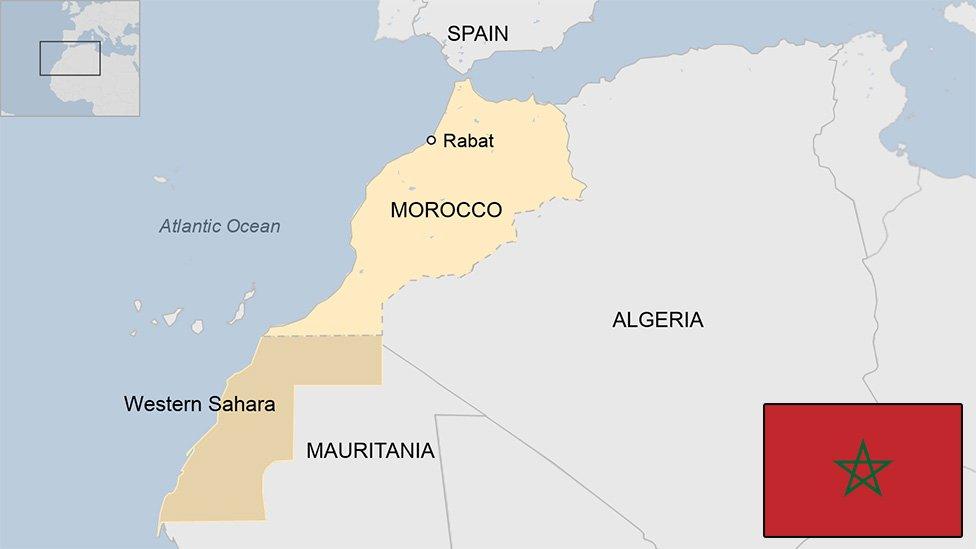Portugal country profile
- Published
This page is no longer being updated. It was last updated on 22 March 2024
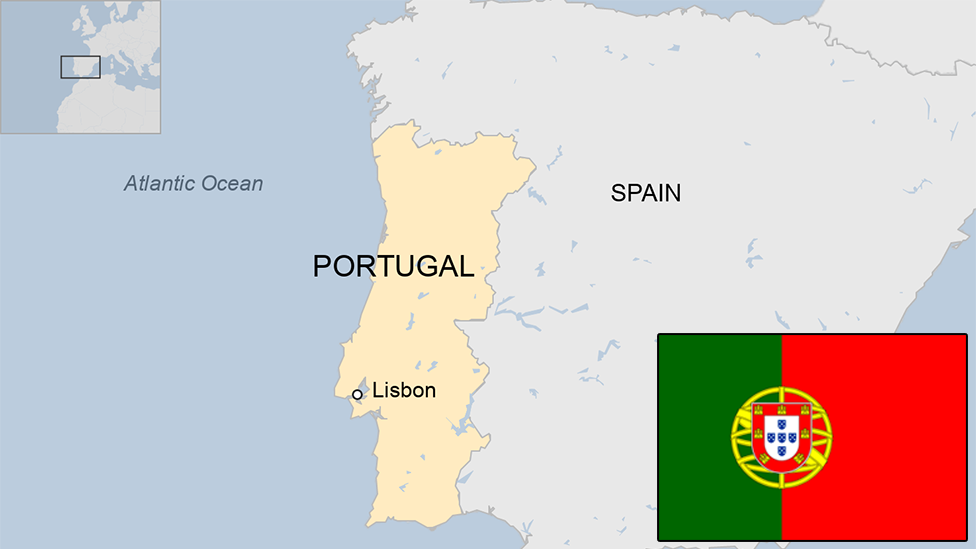
Portugal, a country with a rich history of seafaring and discovery, looks out from the Iberian peninsula into the Atlantic Ocean.
When it handed over its last overseas territory, Macau, to Chinese administration in 1999, it brought to an end a long and sometimes turbulent era as a colonial power.
The roots of that era stretch back to the 15th Century when Portuguese explorers such as Vasco da Gama put to sea in search of a passage to India. By the 16th Century these sailors had helped build a huge empire embracing Brazil as well as swathes of Africa and Asia. There are still some 200 million Portuguese speakers around the world today.
For almost half of the 20th Century Portugal was a dictatorship in which for decades Antonio de Oliveira Salazar was the key figure.
This period was brought to an end in 1974 in a bloodless coup, picturesquely known as the Revolution of the Carnations, which ushered in a new democracy.
Read more country profiles , external- Profiles by BBC Monitoring, external
PORTUGUESE REPUBLIC: FACTS
Capital: Lisbon
Area: 92,212 sq km
Population: 10.3 million
Languages: Portuguese, also Mirandese
Life expectancy: 78 years (men) 84 years (women)
LEADERS
President: Marcelo Rebelo de Sousa
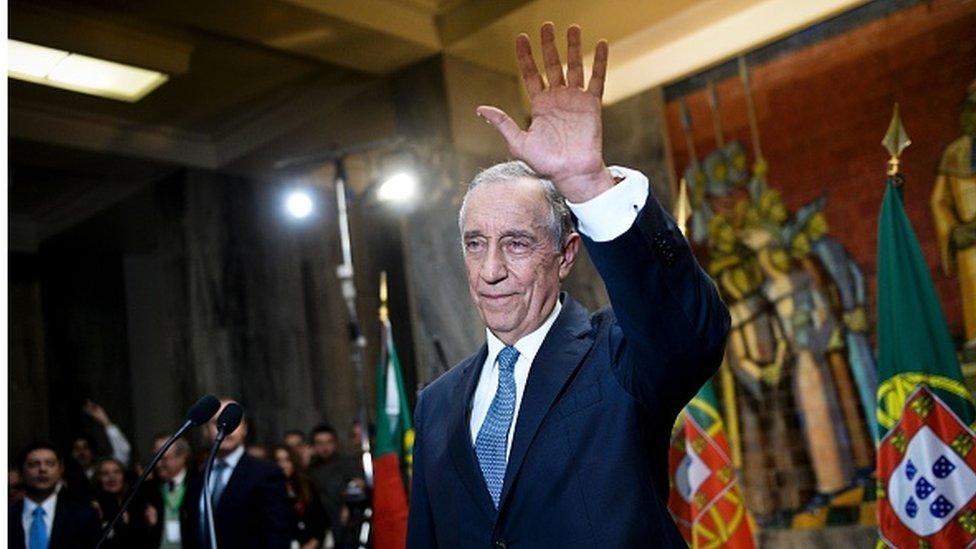
Portugal's President Marcelo Rebelo de Sousa
A veteran of the centre-right Social Democratic Party, Mr Rebelo de Sousa went on to have a high-profile career in journalism and broadcasting before being elected to the largely-ceremonial post of president in March 2016.
He stood as an independent, campaigning to heal the divisions caused by Portugal's 2011-2014 debt crisis and austerity measures.
In March 2020, Rebelo de Sousa asked parliament to authorize a state of emergency to combat the Covid-19 pandemic, the first time Portugal had declared a nationwide state of emergency since becoming a democracy in 1974.
He was re-elected in January 2021 presidential election.
Prime minister: Luís Montenegro
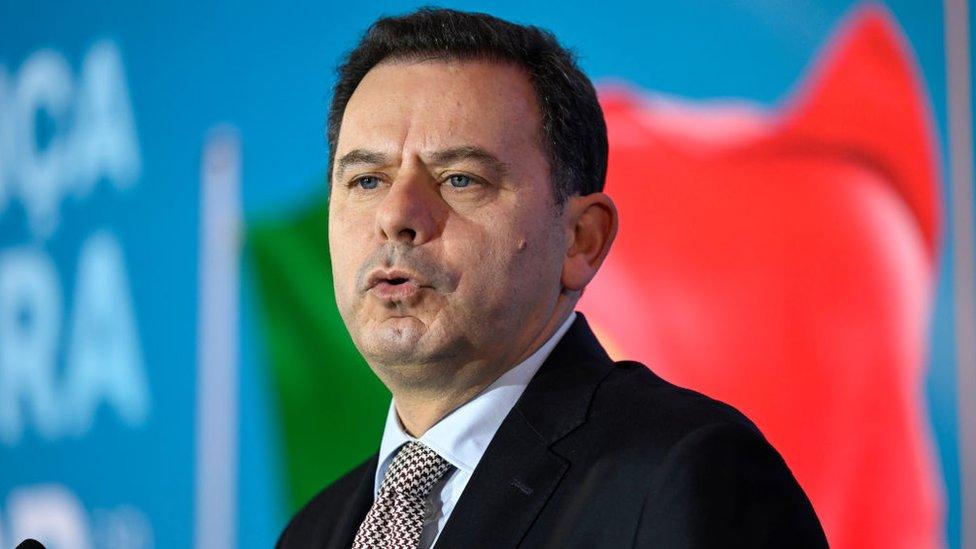
President Marcelo Rebelo de Sousa invited centre-right politician Luís Montenegro to form a minority government following the March 2024 elections that the Democratic Alliance (AD) won, but in which it fell short of winning a majority in parliament.
The AD won 80 seats, well short of the 116 needed for a majority. The party will require the support of either the Socialists, who hold 78 seats or the far-right Chega (Enough), which won 50, to pass legislation.
The party has rejected working with Chega.
Portugal, governed by the Socialists since 2015, now has its most fragmented parliament since the end of its dictatorship half a century ago.
Low salaries and soaring rents led to voters becoming increasingly dissatisfied with centre-left rule.
MEDIA
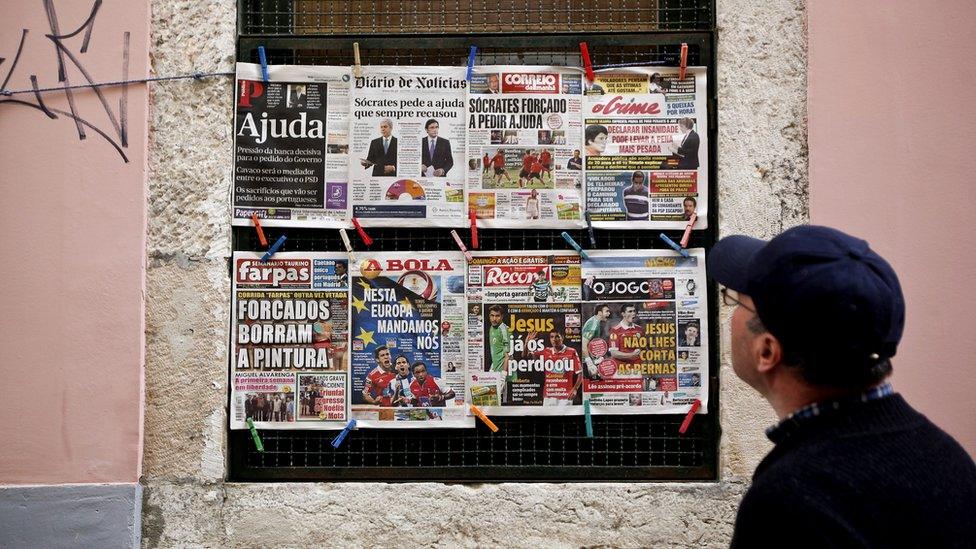
Portugal's commercial TVs have a lion's share of the viewing audience, and provide tough competition for the public broadcaster.
Public TV is operated by RTP. The main private networks are TVI and SIC. Multichannel TV is available via cable, satellite, digital terrestrial and internet protocol TV (IPTV). Cable is the dominant platform.
The switchover to digital TV was completed in 2012.
The public radio, RDP, competes with national commercial networks, Roman Catholic station Radio Renascenca and some 300 local and regional outlets.
Read full media profile
TIMELINE

25th of April Bridge over the Tagus River, Lisbon
Some key dates in Portugal's history:
1139 - Afonso Henriques, Count of Portugal defeats the Moors at the Battle of Ourique and is proclaimed independent Portugal's first king.
1249 - The Reconquista ends with the capture of the Algarve and the expulsion of the last Moorish settlements on the southern coast.
15th Century - Portugal spearheads European maritime discoveries and expansion.
1494 - Treaty of Tordesillas divides the newly discovered lands outside Europe between Spain and Portugal along a meridian halfway between Cuba and Hispaniola in the Caribbean, and the Cape Verde islands off the west coast of Africa.
1498 - Vasco da Gama becomes first European to reach India by sea.
1500 - Pedro Álvares Cabral claims Brazil for Portugal.
1580-1640 - The Iberian Union between the Crowns of Castile and Aragon and Kingdom of Portugal brings the entire Iberian Peninsula, as well as Portuguese and Spanish overseas possessions, under the Spanish Habsburg monarchs Philip II, Philip III, and Philip IV.
1640-1668 - Portuguese Restoration War sees Portugal regain its independence.
1755 - Lisbon earthquake devastates Portugal with an estimated magnitude between 8.5 and 9.0. Between 12,000-50,000 people are killed.
1807-1811 - British-Portuguese forces successfully fight off the French invasion of Portugal in the Peninsular War.
1825 - Brazil becomes independent.
1834 - Constitutional monarchy established.
1908 - King Carlos and eldest son assassinated in Lisbon. Second son Manuel becomes king.
1910 - King Manuel II abdicates amid revolution; Portugal proclaimed a republic.
1911 - New constitution separates church from state. Manuel Jose de Arriaga elected first president of republic.
1916-18 - Portugal fights World War One on Allied side.
1926 - Military coup. General Antonio de Fragoso Carmona becomes president.
1928 - Carmona appoints Antonio de Oliveira Salazar minister of finance.
1932 - Salazar becomes prime minister, a post he will retain for 36 years, establishing authoritarian "Estado Novo" (New State) political system.
1936 - Salazar backs General Franco's nationalists in the Spanish Civil War.
1939-45 - Portugal maintains official neutrality during World War Two but allows UK to use air bases in Azores.
1949 - Portugal becomes founding member of Nato.
1955 - Portugal joins United Nations.
1961-1974 - Portugal fights long colonial wars in its overseas colonies of Angola, Mozambique and Guinea-Bissau against armed independence movements.
1968 - Antonio Salazar dismissed from premiership after stroke; dies in 1970.
1974 - A near-bloodless military coup sparks a mass movement of civil unrest, paving the way for democracy. The 25 April coup becomes known as the Carnation Revolution.
1974-75 - Independence for Portuguese colonies of Guinea-Bissau, Mozambique, Cape Verde Islands, Sao Tome and Principe, and Angola.
1980 - Prime Minister Francisco de Sá Carneiro and Defence Minister Adelino Amaro da Costa are killed in a plane crash. Initially believed to be an accident, a 2004 parliamentary inquiry concludes the aircraft was brought down by a bomb, external, linked to Portuguese arms sales to Iran.
1982 - Military Council of the Revolution abolished, civilian government formally restored.
1986 - Portugal becomes member of EEC (later EU). Mario Soares elected president.
1999 - Portuguese territory of Macau handed over to China.
2016 - Former prime minister Antonio Guterres appointed UN Secretary General.
2017 - Portugal drops complaint to the EU over Spanish plans to build a nuclear waste storage facility which environmentalists fear could affect the River Tagus, after Spain agrees to share environmental information.
2020 - President Rebelo de Sousa asks parliament to authorize a state of emergency to combat Covid-19, the first nationwide state of emergency since becoming a democracy in 1974.
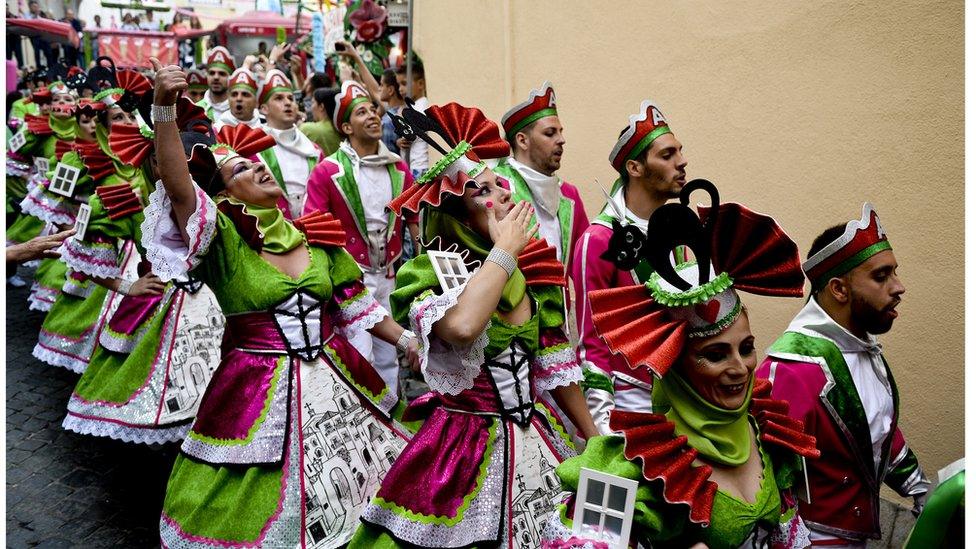
Revellers celebrate the feast of St Anthony, Lisbon's patron saint
- Published21 August 2023

- Published9 January 2024
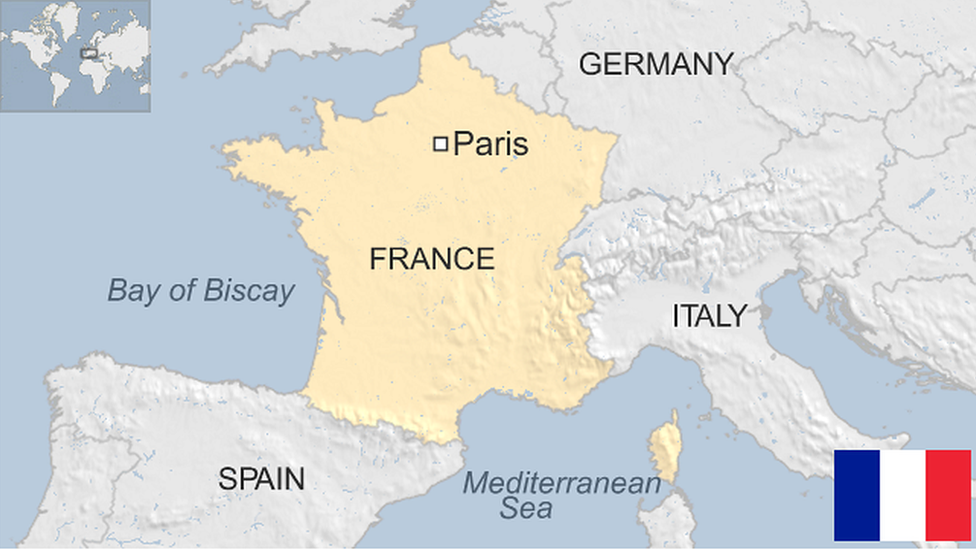
- Published4 October 2023
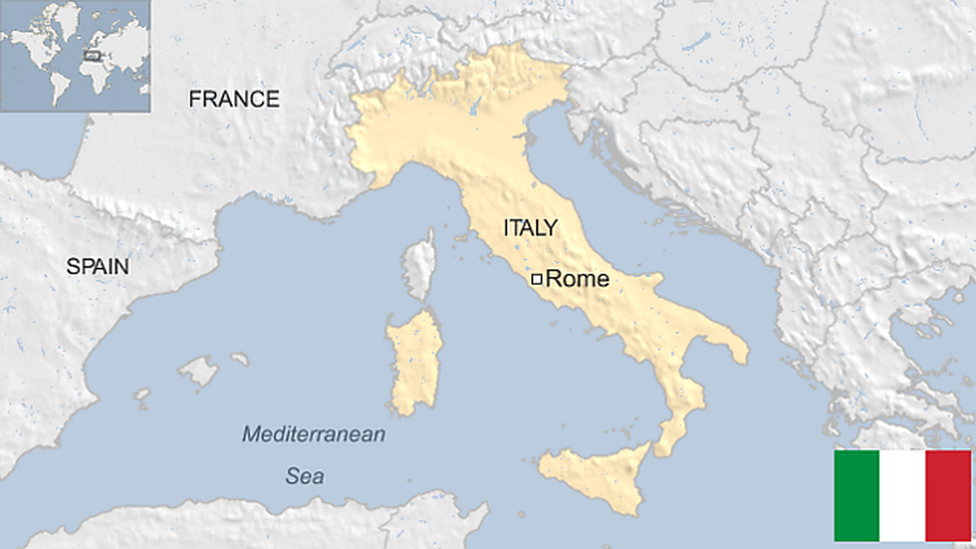
- Published28 October 2024
